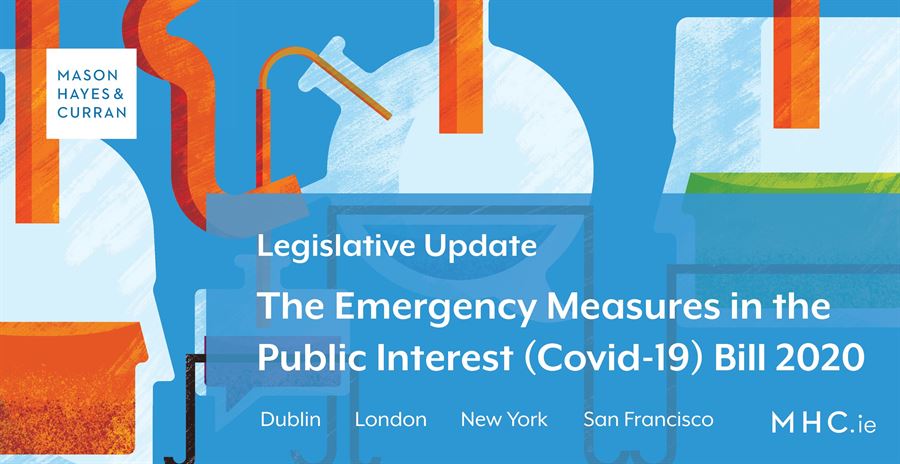
The Emergency Measures in the Public Interest (Covid-19) Bill 2020, as drafted, will likely not have the intended effect of encouraging employers to retain and pay employees, with all of the collateral benefit that brings. This seems to arise from drafting failures rather than a failure of political will or intent.
Eligibility
2.jpg) First, and most importantly, the eligibility test[1] requires that an employer is currently unable to pay an employee. This requires that an employer is technically cash flow insolvent.
First, and most importantly, the eligibility test[1] requires that an employer is currently unable to pay an employee. This requires that an employer is technically cash flow insolvent.
This means, amongst other things that:
-
Companies with some divisions which are affected and some which are not, will likely lay off employees rather than retain them
-
Listed companies and many other companies won’t avail of the measures because of the language about being “unable” to pay wages
-
Any company that declared such inability could expose its directors to a personal risk of civil and criminal liability for reckless and/or fraudulent trading, and
-
The criminal and civil penalties envisaged for getting it wrong mean that conservative decisions, i.e. lay them off, will likely be taken
Revenue’s Guidelines
Revenue seem to have realised the impossibility of the test and issued guidelines[2] late last, which put forward a somewhat better test.
However, the Courts are obliged to work on the basis that the text of an Act reflects the intention of the Oireachtas, there is extremely limited scope for courts to effectively correct drafting errors by strained interpretations. Accordingly, companies will be advised to rely on the legislation. After all, reliance on Revenue practice is at the heart of the controversy about the potential Apple tax bill.
The Law Society recognised the drafting issues yesterday and wrote to the Minister for Employment and Social Protection making a sensible the suggestion which would have solved all the eligibility issues and the Bill conform with the intention of the Government,
That does not appear to have been accepted by the Minister.
Level of salary that can attract a subsidy
There are two problems with the drafting around the subsidisation of salaries.
First, the language on thresholds seems to have the tenses wrong and bases the subsidy on pre-COVID-19 salary levels not adjusted levels.
Secondly, as currently drafted, there is a massive incentive to reduce all employees down to a maximum of €76,000 pa to qualify for subsidy as it would seem that if you do that you might get a subsidy but if you reduced someone to €80,000, you would get nothing.
Comment
The Bill is well intentioned but the drafting needs to be carefully considered and resolved if it is to accord with the declared intent of the Government and achieve its intended effects.
For more information, contact a member of our Dispute Resolution team.
The content of this article is provided for information purposes only and does not constitute legal or other advice.
[1] Section 26(2) of the Bill.
Share this:






